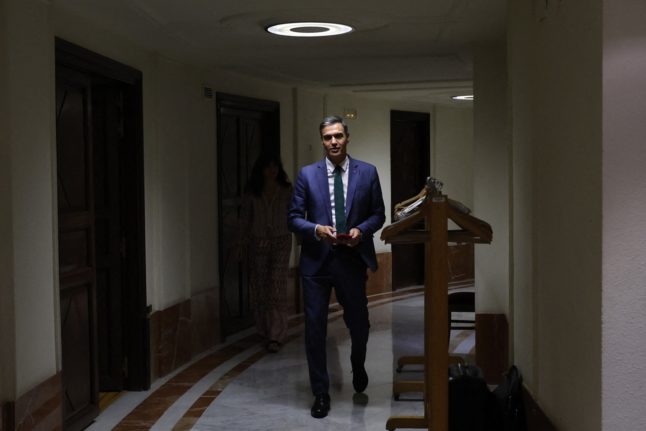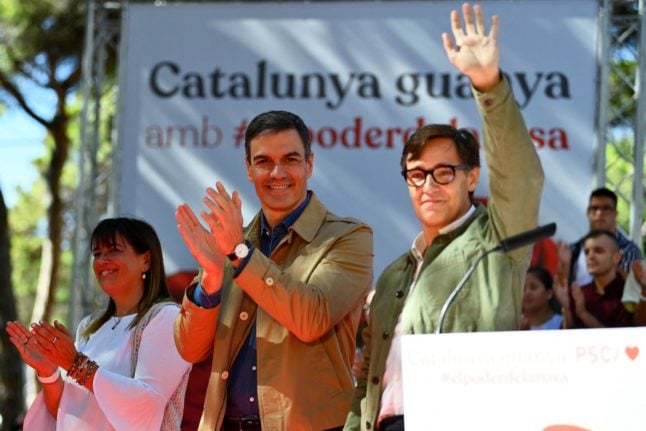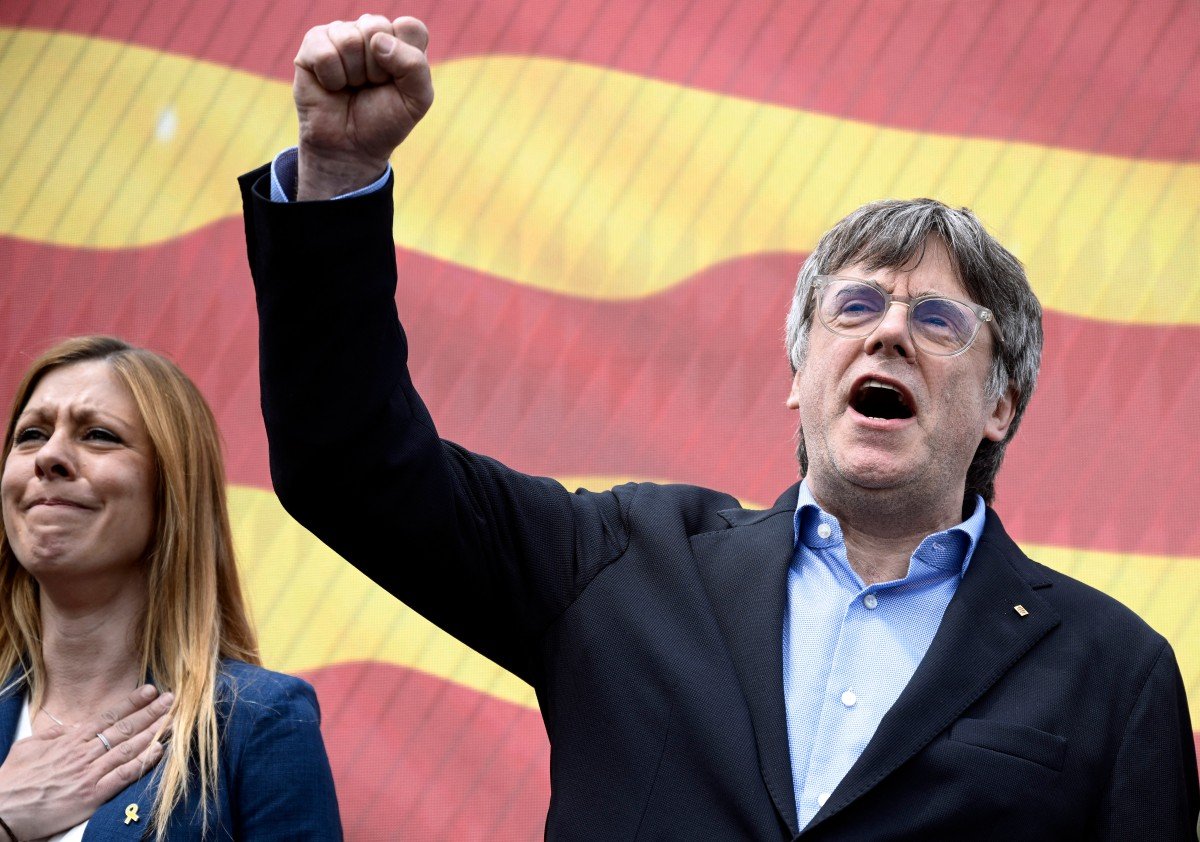Pedro Sánchez, in office since 2018, wrote in a four-page letter posted on social media on Wednesday that he would suspend public duties while he “reflects” on whether he wants to continue leading the government.
The Socialist leader denounced “the seriousness of the attacks” against him and his wife, saying it was part of a campaign of “harassment” waged by the right and far right who “do not accept the election results”.
READ ALSO: Who is Begoña Gómez? Spanish PM’s partner thrust into spotlight
Sánchez, an expert in political survival who has made a career out of taking political gambles, said he would announce his decision on Monday.
Some analysts said he could decide to stay on, with this move aimed at rallying support and regaining the initiative in the face of the right-wing opposition at a time of extreme polarisation in Spanish politics.
“Sánchez is a political animal,” said Oriol Bartomeus, a political scientist at the Autonomous University of Barcelona, adding “he has decided to go on the attack” to try to “change the rules of the debate”.
Paloma Román, a political scientist at Madrid’s Complutense University, said Sánchez had “slammed his fist on the table” as part of a “strategy aimed at putting the spotlight where he wants it”.
Sánchez could file a confidence motion in parliament to show that he and his minority government are still supported by a majority of lawmakers in parliament.
Catalan separatist leader Carles Puigdemont, whose JxCat party is an unpredictable ally of the government, has urged Sánchez to pick this option.
For the confidence motion to succeed, Sánchez would just need the backing of a simple majority in the assembly and most of the parties which prop up his minority government have already shown their unconditional support.
Catalan separatist party ERC said it would vote in favour of a confidence motion while hard-left party Podemos, which has clashed with Sánchez in the past, blasted attacks by “the political, media and judicial right” on the prime minister and the left in general.
While the conservative opposition has accused Sánchez of playing the victim to rally support, analysts said the possibility that he will resign cannot be completely ruled out.
“Sánchez’s closest advisers and the leadership of the Socialist party will probably spend the coming days trying to convince him to stay,” said Teneo analyst Antonio Barroso.
“The fact that the prime minister allegedly did not consult any of his advisers when drafting the letter suggests personal reasons might be his main motivation. This makes Sánchez’s decision particularly hard to predict.”
If Sánchez does step down, the Socialist party could propose that parliament appoint someone else as head of the government, with Budget Minister María Jesús Montero, who also serves as deputy prime minister, touted as a likely contender.
But Barroso said it “would probably be hard for Montero to cobble together a majority” in Spain’s highly fractured parliament.
Sánchez could instead resign and call snap elections but he would not be able to do so before May 29 since a year must pass between consecutive dissolutions of parliament.
With the Socialists trailing the main opposition conservative Popular Party in opinion polls, this is a risky strategy, although analysts said Sánchez may bet that leftist voters will be galvanised by the controversy sparked by his resignation.
READ ALSO: Spanish prosecutors question credibility of corruption probe against PM’s wife




 Please whitelist us to continue reading.
Please whitelist us to continue reading.
Member comments